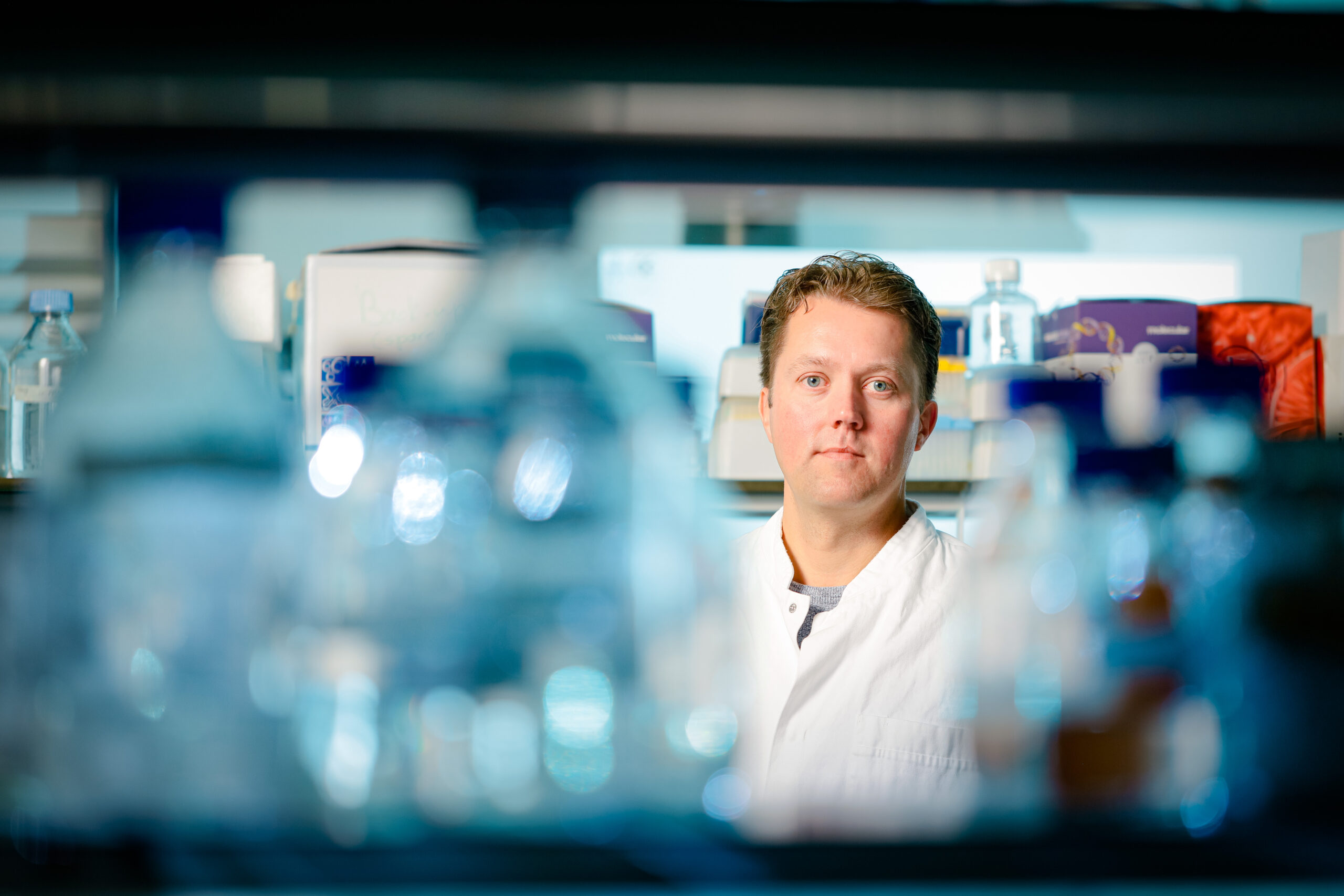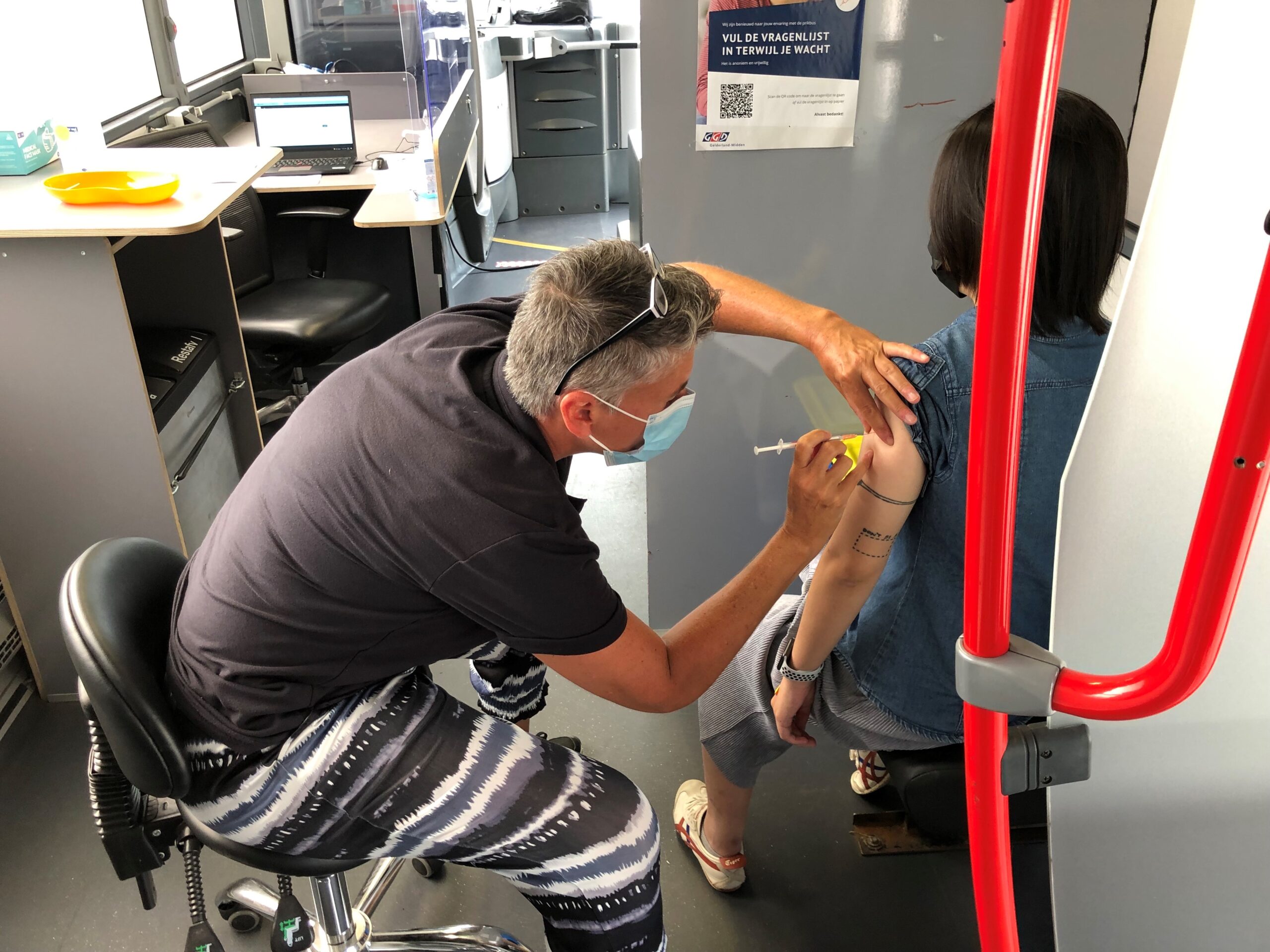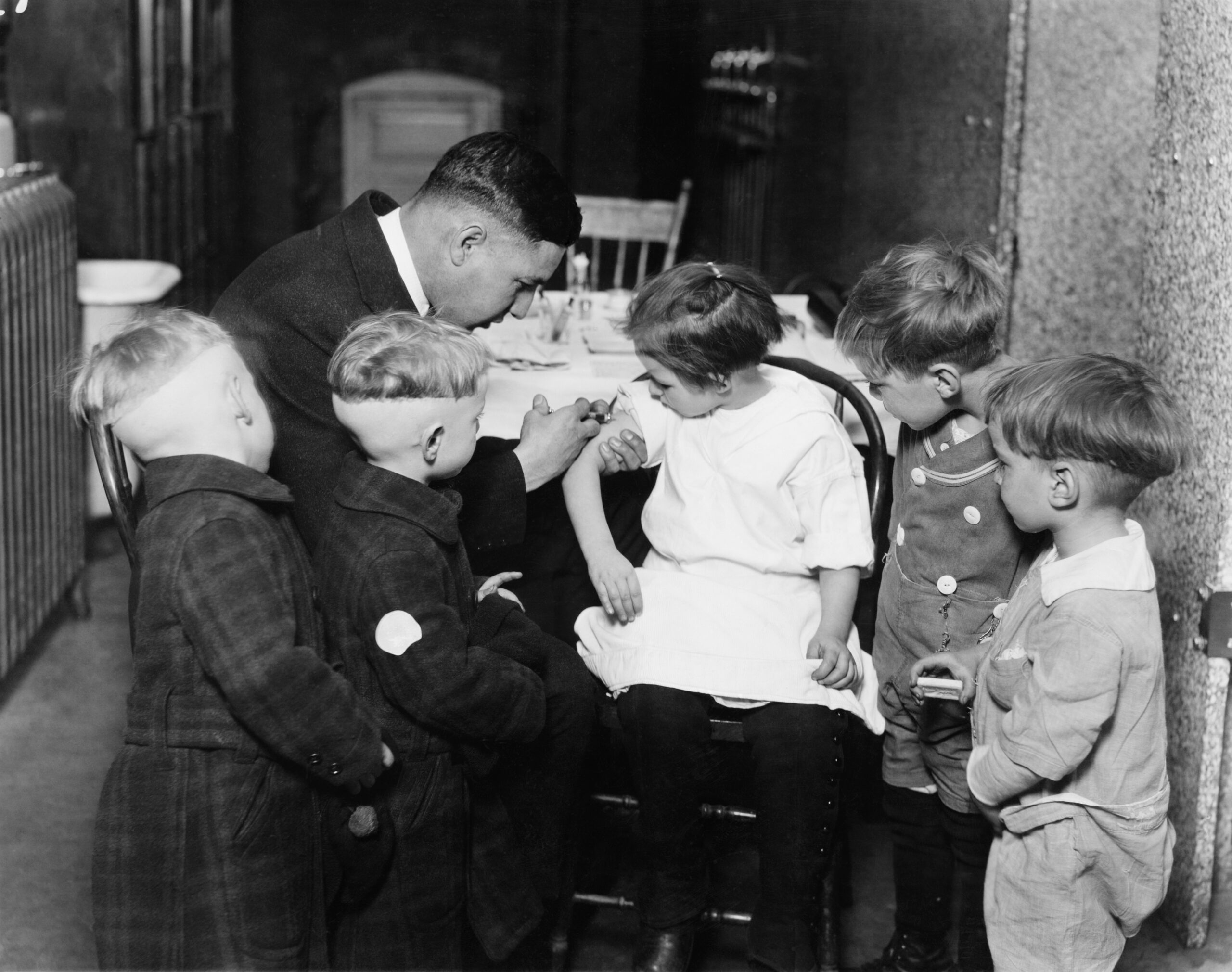Just when most people have been vaccinated, the coronavirus vaccine developed in Wageningen is nearly ready. Too late? No, says virologist Gorben Pijlman. ‘Our vaccine could serve as an annual booster shot to keep up resistance to Covid-19.’
Tests
The Wageningen research groups Virology, Bioprocess Technology and Biochemistry have been working hard for the past year on a ‘back-up’ Covid-19 vaccine called S1-VLP. The tests with this vaccine have been successful, says Pijlman, who published the results this week in the scientific journal mBio.
Immune respons
The ‘back-up’ vaccine was developed in collaboration with Danish partners in the European Prevent-nCoV consortium. The Danes have developed a comparable vaccine, ABNCoV2, which was tested in a clinical study at Radboud University Medical Centre in Nijmegen earlier this year. Pijlman and a few of his colleagues received two shots of this vaccine. ‘The immune response was excellent and the production of antibodies in the test subjects was even higher than after two Pfizer shots.’ This vaccine is now in the final testing phase. If that is successful, the pharmaceutical company Bavarian Nordic will produce it for the market.
Side effects
The Wageningen and Danish vaccines are protein vaccines, just like the familiar flu jab. They have fewer side effects than the mRNA and vector vaccines made by Pfizer and AstraZeneca. Pijlman: ‘In a pandemic it’s acceptable for there to be more side effects, but a lot of people were quite unwell for several days after a Covid jab. If we’re going to have to get a booster shot every six months, this kind of protein vaccine without many side effects could be the answer.’ That is why work will continue on these protein vaccines. S1-VLP is manufactured in moth cells. A big advantage of that is that the vaccine can be produced on a very large scale: a single bioreactor containing the insect cells can product a million doses. And tests on mice have shown that this vaccine produces a good immune response at a low dose.

 Photo Eric Scholten
Photo Eric Scholten ![[no]WURries: Covid quarrels](https://www.resource-online.nl/app/uploads/2021/11/nextWURRY_online_1606_UK.png)

